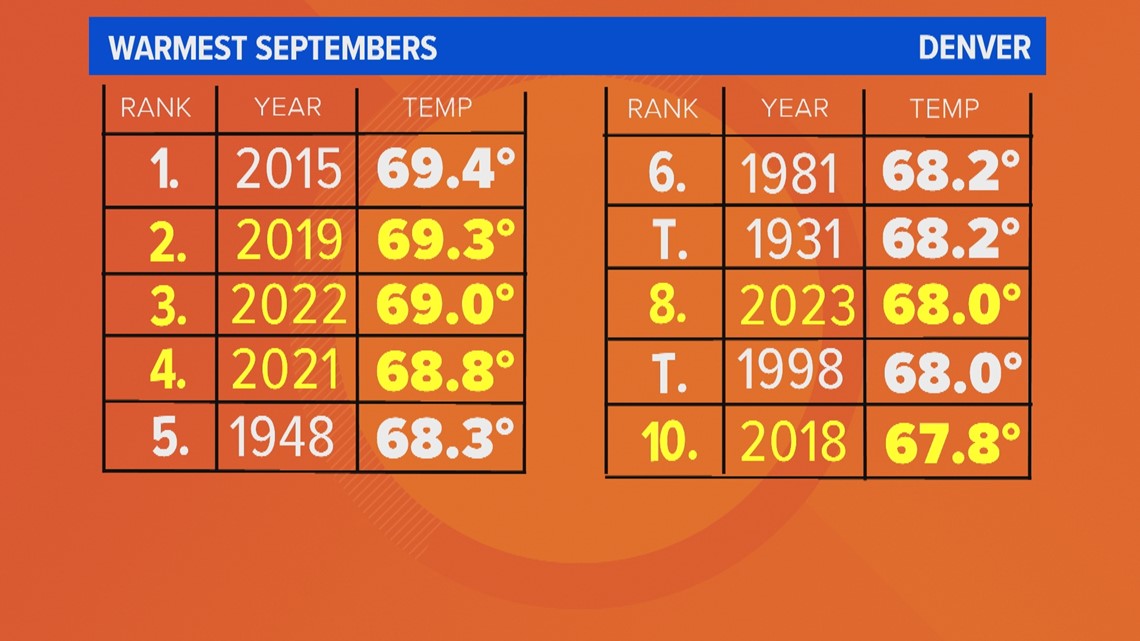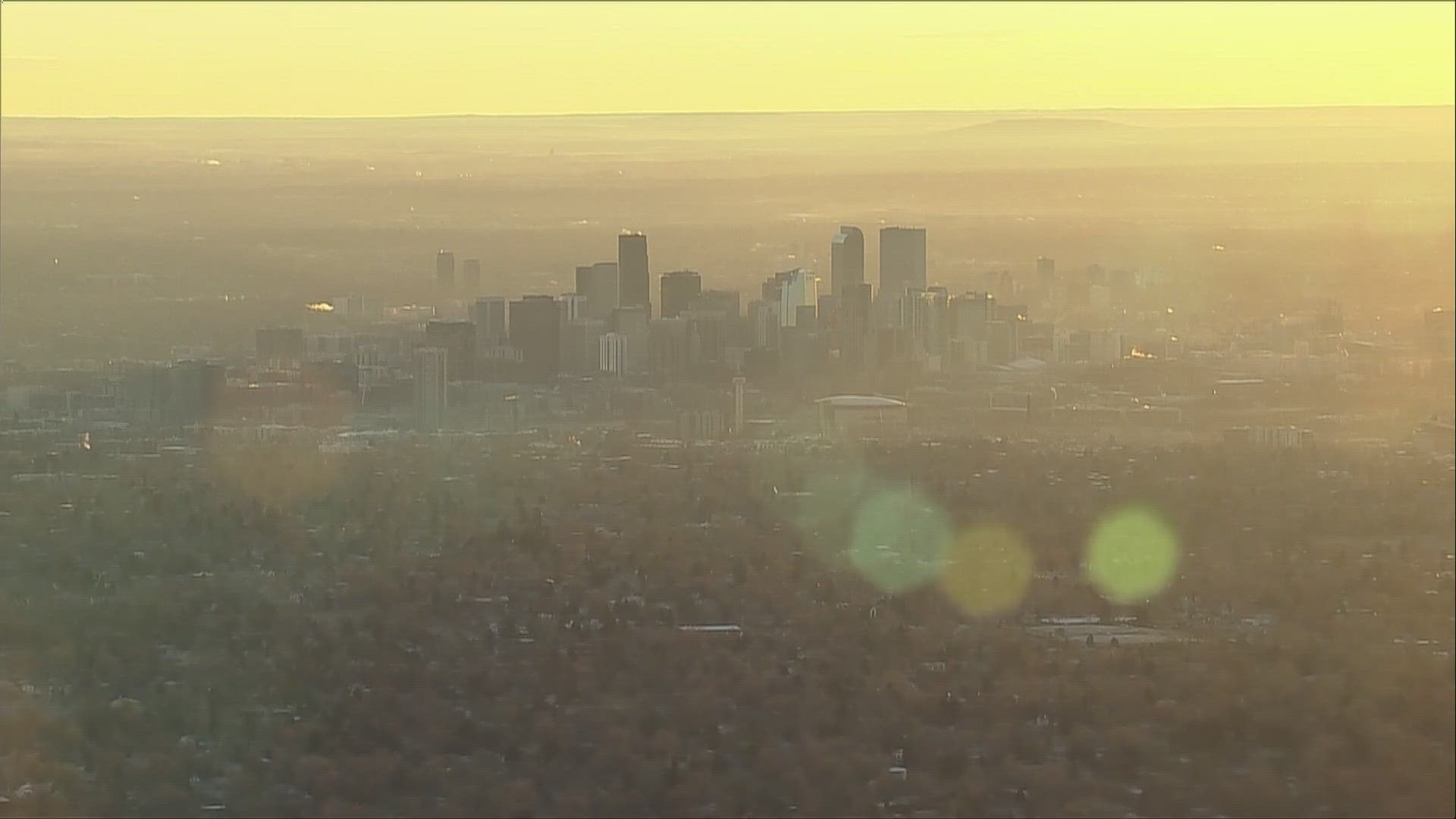DENVER — September 2023 will go down as the 8th warmest in Denver history with an average temperature of 68 degrees. Now five out of the last six Septembers are all in the Top 10 warmest. Denver's temperature record goes back 151 years.
And the same can be said for the rankings across the entire state of Colorado. September 2023 is projected to make the top 10 warmest but that number won't be verified officially for another week.
Statewide September rankings in Colorado:
- 2019 (62.9°)
- 2015 (62.6°)
- 2022 (62.5°)
- 1998 (62.5°)
- 2021 (62.4°)
- 2018 (61.9°)
- 2010 (61.2°)
- 1990 (61.2°)
- 1933 (61.1°)
- 1963 (60.9°)
The data is both fascinating and meaningful because there is an obvious climate signal emerging.
Even if you look at September of 2020. It didn't make the top 10 warmest because it had the earliest freeze ever recorded in Denver, but three days before that it hit 101 degrees – Denver’s hottest September temperature in history and the city’s latest 100-degree day.


September 2023 in Denver was also the second straight September with no low temperatures below 40 degrees. The last time the temp dropped into the 30's was on May 8. As of Monday, the 147-day streak above 39 degrees is 14th longest in Denver history. That streak will likely get extended by a few more days. The low temperature could drop below 40 degrees any day this week, but the best chance isn't until Friday and Saturday.
September is indeed the fastest changing month in Denver. You could also use snow as an indicator, or lack of snow in this case. From 1976 to 1999 Denver got almost 40 inches (38.2") of September snow. And there hasn’t even been 2 inches (1.2") over the last 23 Septembers.
Is summer lagging?
There are many variables that go into this change, but one interesting theory is a kind of summer lag effect. Which means the heat of summer is essentially taking longer to wear off.
Much like the water of the ocean takes longer to cool. That’s why the hurricane season goes through October and November. Well, the atmosphere is an ocean of invisible water called water vapor and because of climate change there is more water in the atmosphere than anytime in human history.
Some of the earliest climate modeling from the 1980's had indicated that the summer season will lengthen in the future while the other seasons shorten. There is now enough data to make a confident statement that that is occurring, at least in Colorado.
SUGGESTED VIDEOS: Latest from 9NEWS

